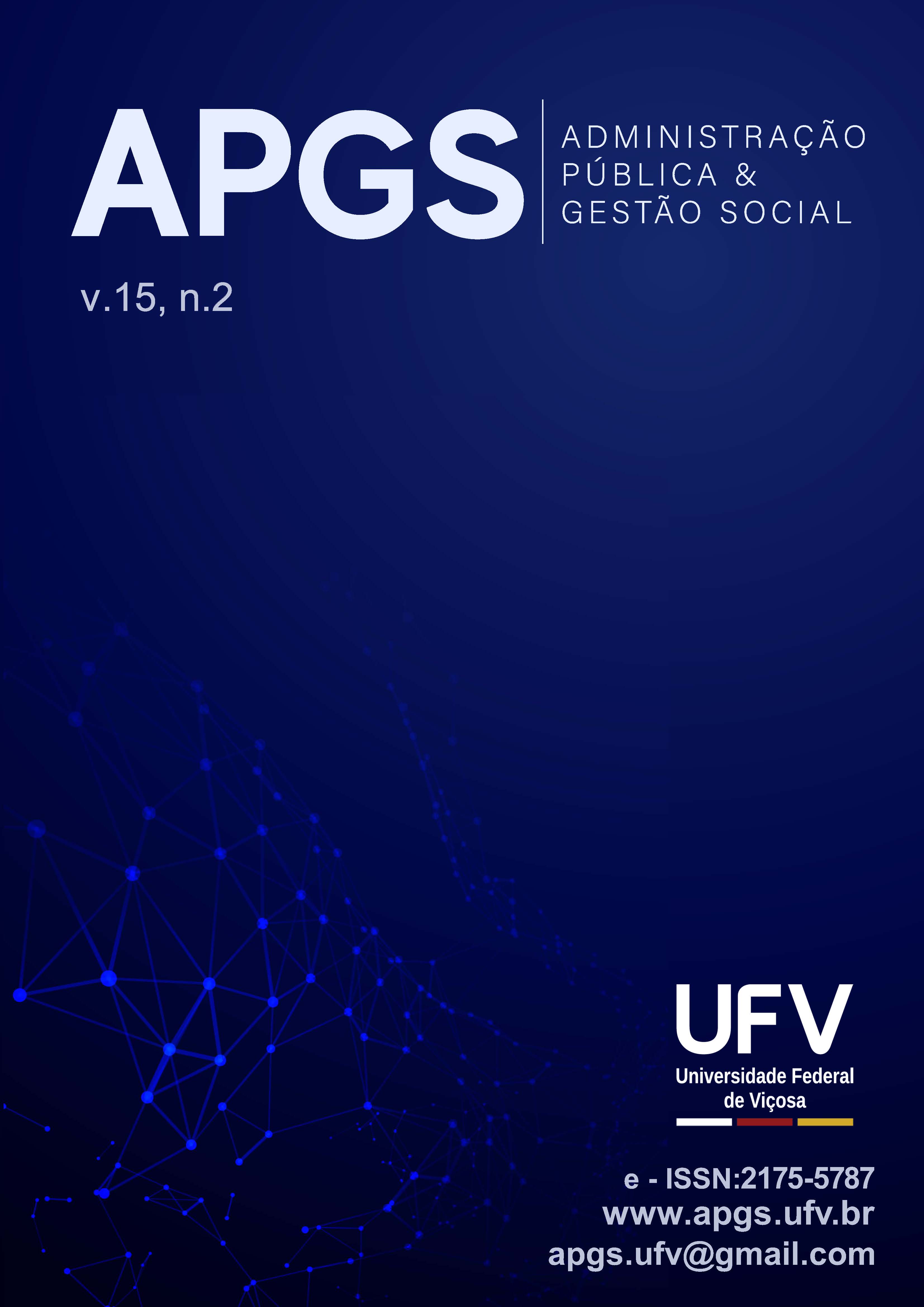Relative Efficiency of Public Health Management and Its Determinants
DOI:
https://doi.org/10.21118/apgs.v15i3.14059Abstract
Research objective: To identify determinants of efficiency in the health micro-regions of the State of Minas Gerais.
Theoretical framework: Efficiency is an assumption of the New Public Management theory. For public health, efficiency refers to optimizing resources so that assistance can be guaranteed to the entire population. Local characteristics can determine a better allocation of resources, impacting the efficiency and well-being of the population.
Methodology: Through Tobit regression, the impact of income, schooling, aging and population growth on the relative efficiency of public health in the health microregions of the State of Minas Gerais was verified. The relative efficiency of health was obtained through Data Envelopment Analysis - DEA.
Results: The aging index and population density had a negative impact on the relative efficiency of health. GDP per capita had a positive impact on efficiency.
Originality: The analysis of efficiency in public health limited to factors controlled by the system itself can compromise the generation of social justice. Local characteristics can determine a better allocation of resources and directly impact public health efficiency.
Theoretical and practical contributions: The study addresses the generation of social justice, not only in public health, but also related to socioeconomic aspects. Contextual factors must be part of public health policies in order to guarantee universality, integrality and equality in public health.
Keywords:Public Health, Relative Efficiency, Tobit Regression.
Downloads
Published
How to Cite
Issue
Section
License

This work is licensed under a Creative Commons Attribution-NonCommercial-NoDerivatives 3.0 Unported License.
Authors who publish in the Journal of Public Administration and Management Social (APGS) must agree to the following terms:
• Authors retain copyright and give the journal the rightof first publication with the work simultaneously licensed underthe Creative Commons Attribution License, permitting sharingwork with the recognition of the work of authorship and publicationstarting in this journal.
• Authors have authorization to assume additional contractsseparately for non-exclusive distribution of the work releasepublished in this journal (eg. publish in institutional repositories oras a book), with an acknowledgment of its publicationstarting this journal.
• Authors are permitted and encouraged to post theirwork online (eg, in institutional repositories or on their websitepersonnel) at any point before or during the submission process, asit can generate criticism and helpful suggestions, as well asincrease the impact and citation of published work.
• Authors reserve the right of the editors of this journal to make in theoriginal works, alterations of normative order, orthographic andgrammatical, aiming at complying with its editorial policy and keep thedefault cult of language, respecting, however, the authors' style.
• Authors assume exclusive responsibility for their opinionsgiven in the articles published in this journal.



